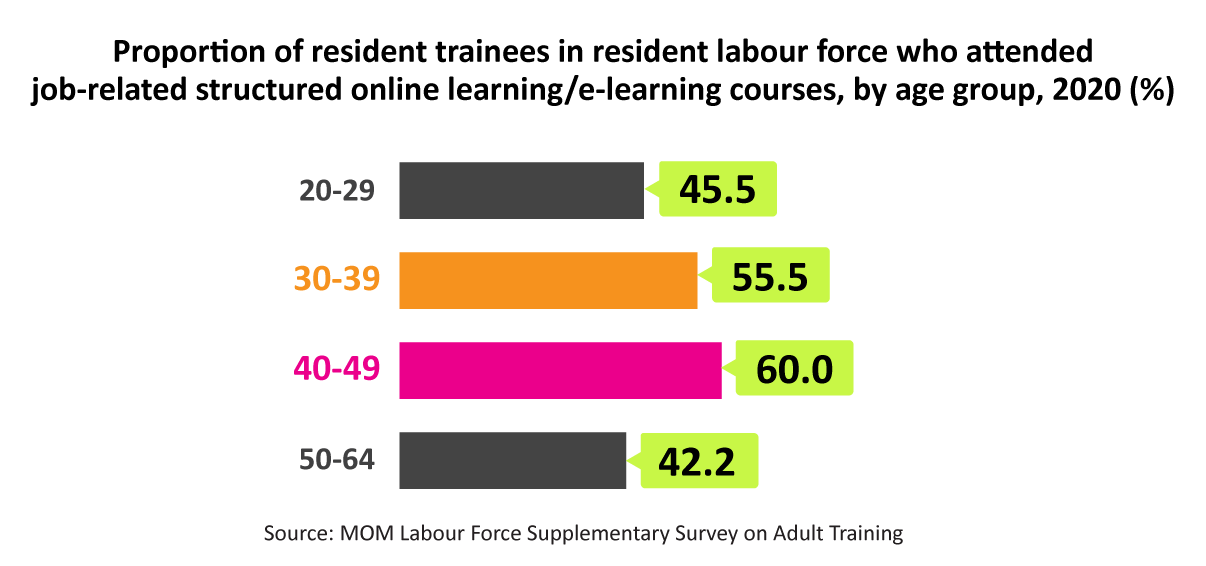LEARNING DOES NOT STOP
According to our report on
Online Training in Singapore,
the proportion of resident trainees who attended job-related structured online learning has doubled to 51.5% in 2020 as in-person teaching has been suspended or reduced due to the pandemic. This refers to trainings conducted online related to current or future jobs. Amidst the pandemic, it is crucial for employees to upskill or reskill to raise productivity and enhance lifelong employability. As many as 50.4% of the respondents acquired vocational/job-specific skills that was required for daily work duties. However, 58.8% of respondents felt that online training involving theoretical knowledge was better suited for online learning over courses on vocational/job specific skills. This was due to the need for hands-on practice which was difficult to replicate online.

For example, the LEARN  site is available for all public servants in Singapore to upskill and reskill. Many corporates also tie up with digital learning providers like Udemy and Coursera to offer their employees free courses which may be relevant to their job. Courses ranging from coding to financial literacy are free for employees who are keen to learn a new skill and can be awarded a certificate upon completion.
site is available for all public servants in Singapore to upskill and reskill. Many corporates also tie up with digital learning providers like Udemy and Coursera to offer their employees free courses which may be relevant to their job. Courses ranging from coding to financial literacy are free for employees who are keen to learn a new skill and can be awarded a certificate upon completion.
Tertiary educated trainees, as well as those in their 30s and 40s, were most likely to take courses online. These age group of employees are conversant in and comfortable with technology. At this stage in their careers, they look to upskill or reskill to better work performance.

ONLINE LEARNING IS HERE TO STAY
For adult learners, the easy access to learning materials and education from instructors around the world can broaden their horizon. For instructors, online learning allows for more collaboration between peers, as sharing and comparing teaching materials become more convenient. Lastly, for corporations, the ease of planning online courses for staff can be advantageous as there is less restrictions on class size.
As many as
73.4% of respondents would prefer online learning to be made permanently available even after the pandemic. This was mostly due to flexibility in learning schedule. On the other hand, online learning has its challenges. 41.3% of the respondents found a lack of social interaction found in a physical classroom environment to be the main drawback of online learning.

Therefore, we need to consider the type of courses suitable for online learning along with the preference and aptitude of the learner, to maximise the result produced via online learning. For instance, hybrid learning, where some participants attend the course physically while the instructor teaches online, might be an alternative to the shortfalls of online learning. The participants can mingle face-to-face when they attend courses in-person, while the instructor can have access to a much bigger audience with no geographical constraint. With adaptability to changes in the way adults learn, employees can have the agility required to switch to adjacent sectors when needed and stay relevant in their job.

